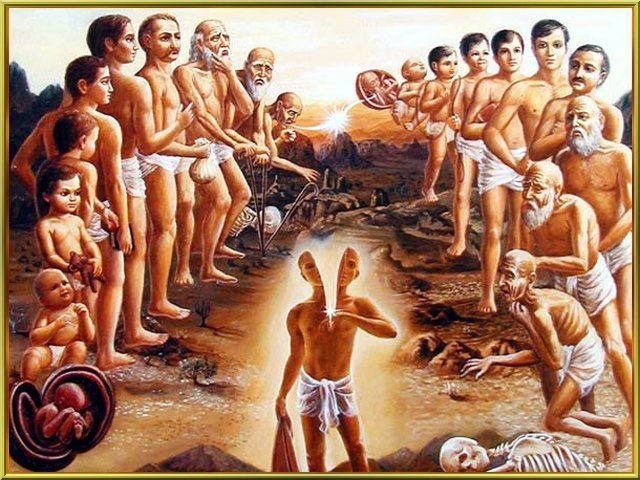Verse 35
bhayād raṇād uparataṁ maṁsyante tvāṁ mahārathāḥ
yeṣāṁ ca tvaṁ bahumato bhūtvā yāsyasi lāghavam
Word-by-Word Meaning:
| Sanskrit | Meaning |
|---|---|
| bhayāt | out of fear |
| raṇāt | from battle |
| uparatam | having refrained / withdrawn |
| maṁsyante | will think / will consider |
| tvām | you |
| mahārathāḥ | great warriors / mighty chariot-warriors |
| yeṣāṁ | to whom |
| ca | and |
| tvam | you |
| bahumato | highly esteemed / respected |
| bhūtvā | having been |
| yāsyasi | you will incur / attain |
| lāghavam | disgrace / lightness / loss of esteem |
The great warriors will think that you have withdrawn from the battle out of fear, and having been highly esteemed by them, you will fall into disgrace.

Expanded Commentary:
In continuation of his motivational appeal to Arjuna, Krishna here warns about worldly perception and the loss of honor. It’s not just about internal guilt—there is also a public consequence to retreating from duty.
- Mahārathāḥ (great warriors) will assume Arjuna fled the battlefield not due to compassion or philosophical inquiry, but out of cowardice.
- Arjuna, once held in high esteem (bahumato) by them, will suffer a loss of status (lāghavam) in their eyes.
- This perceived weakness undermines all the virtues Arjuna stood for as a kṣatriya (warrior).
Symbolic Meaning:
| Term | Symbolizes |
|---|---|
| Mahārathāḥ | The world, society, or spiritually aware individuals |
| Bhayāt uparatam | Avoidance of responsibility due to fear |
| Bahumato | Earned honor through righteous action and valor |
| Lāghavam | Loss of spiritual and social weight; becoming insignificant |
Philosophical Insights:
- Honor Is Earned, Not Assumed:
- Esteem arises from courageous action in alignment with dharma.
- When one avoids dharma, even a respected soul loses significance.
- Cowardice vs. Compassion:
- Krishna makes it clear: if you withdraw from this righteous war, it will not be seen as noble, but as cowardice.
- Perception Has Karmic Weight:
- Reputation influences not only how others treat us, but how we influence dharma and society itself.
- Loss of Integrity = Spiritual Fall:
- Lāghavam is more than dishonor; it’s a fall from one’s own spiritual stature.
Practical Application:
- Face Duties Head-On: Avoiding responsibility—even under the guise of nobility—can cost one both internal peace and external respect.
- Reputation Reflects Dharma: Live so that your integrity and purpose align; then, others’ perceptions will mirror truth.
- Don’t Fear Public Opinion—But Don’t Earn Disgrace: Acting righteously brings respect naturally. Avoiding duty brings shame, not sympathy.
Reflection Questions:
Am I choosing withdrawal from responsibility due to fear or confusion?
How do others’ perceptions impact my motivation and moral strength?
Have I earned the trust and respect of others—and am I living in a way that maintains it?
In moments of challenge, do I act from principle or fear?
Conclusion:
This verse delivers a powerful insight: the world judges by action, not intention. Even if Arjuna believes he’s stepping away from war out of compassion, the world will perceive it as cowardice—a betrayal of his duty. And the fall from earned respect is more wounding than any physical battle.
Krishna reminds Arjuna that true greatness lies in standing firm in one’s dharma, especially when it’s difficult. Avoidance may seem peaceful, but it leads to dishonor and spiritual diminishment.
